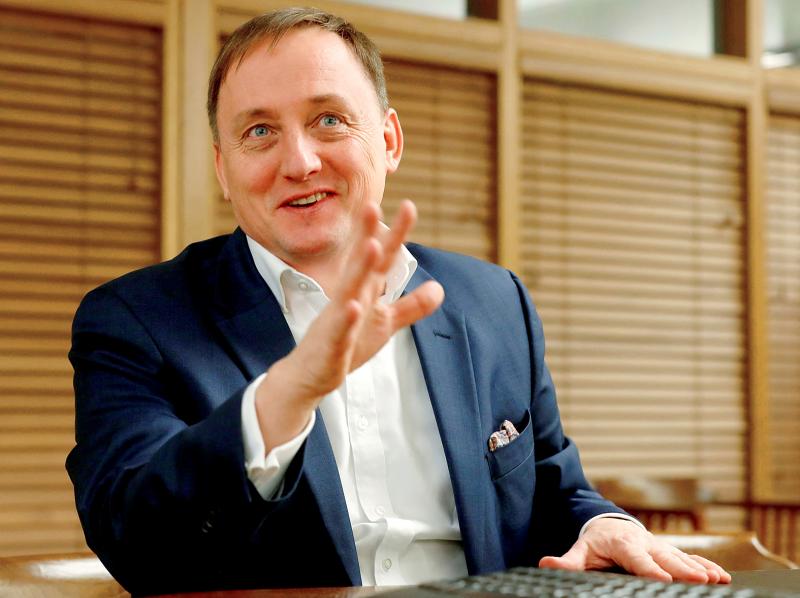rising prices:
The Governor of the Central Bank of Latvia emphasized the need to monitor the labor market and inflation expectations in order to adjust prices quickly if necessary.
Mārtiņš Kasaks, a member of the Governing Council, said that the European Central Bank should consider raising the initial interest rate above the planned quarter-point increase if there are signs that higher inflation rates are raising expectations.
“If we see that the situation has deteriorated, that inflation is high and we see negative news regarding inflation expectations, then I think that frontloading would be a reasonable solution,” said Kazaks, the Governor of the Central Bank of Latvia. . Bloomberg Television in Sintra, Portugal.
The European Central Bank should keep an eye on “what is happening in the labor market, what is happening to strengthen expectations – are expectations starting to rise?” A goat who refused to speculate on whether a change in these factors could justify an increase of half a point.
Money markets, according to him, raised rates to 163 basis points this year, compared with 158 basis points on Monday.
European Central Bank officials are meeting for their annual recall, raising concerns about the consequences of next month’s interest rate hike for more than a decade.
There is much to discuss: as borrowing costs rise, investors are wary of a repeat of Europe’s debt crisis, and the threat of a disruption to Russia’s energy is fueling fears of an economic downturn.
Kazakhs have described the risks of a recession as “insignificant” as higher prices eat up consumption. However, he said he believed rates could be raised “very quickly”.
The European Central Bank will receive more information on inflation expectations later this week, and this month’s data released on Friday will show a new record high.
Price increases are now more than four times the European Central Bank’s 2 percent target.
Meanwhile, pressure is growing on the European Central Bank to announce a new instrument to avoid panic in sovereign debt markets as it raises interest rates.
At an extraordinary meeting this month following the rise in Italian bond yields, she agreed to step up work on a crisis instrument.
Kristine Lagarda, President of the European Central Bank, and several of her colleagues believe that the so-called anti-fragmentation tool is needed to protect efforts to curb inflation, even though they have not yet revealed all the information.
It is important that fragmentation does not hinder the normalization of monetary policy, Kazak said. He said measures to offset the potential incentive effect of buying bonds could be part of the new instrument.
“Sterilization can be one of the elements,” Kazak said. “My personal opinion is that it should be part of the tool.”
He said that any new instrument “should be a pillar” and should only be used when it is most needed.
Until the plan is presented, officials aim to ease potential market tensions by reinvesting € 1.7 trillion in the European Central Bank’s COVID-19 pandemic asset purchase program.
In related news, Lagarda said the ECB would do “as much as it needed” to fight inflation, which would remain “undesirably high” for some time to come.
High inflation is a “huge challenge,” Lagarda said at the bank’s annual monetary policy conference. “We will go as far as we can to ensure that inflation remains stable over our medium-term objective.”
AFP additional report
–
Comments will be moderated. Save comments related to the article. Notes containing offensive or obscene language, any kind of personal attacks, or bans on ads and users will be removed. The final decision will be made by the Taipei Times.


